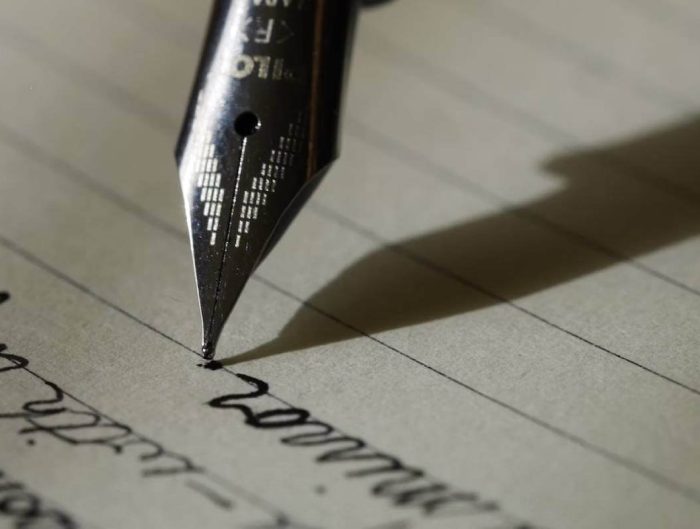It’s nice to see you again, friends, time for another virtual lesson! Hoy el BRITÁNICO te trae un repaso del Direct Speech y el Reported Speech. Existe un mito que dice que este aspecto de gramática es muy difícil; en realidad es cuestión de práctica, algo de memoria y mucho sentido común. ¡Empecemos!
Al conversar o al redactar un texto, cuando deseamos comunicar o informar lo que otra persona ha dicho anteriormente, existen dos maneras de hacerlo: utilizando el Direct Speech o el Reported Speech.
1) Direct Speech (Estilo directo)
Tal como su nombre lo indica, en el Direct Speech no se hace ningún cambio, sólo se coloca la oración original entre comillas. Por ejemplo:
-“I’m going to the movies next Tuesday,” she said.
-Jennie said, “I love to drive at midnight.”
-Frankie asked, “Would you like to have lunch with us?”
-“Do you have a pen I could borrow,” he asked.
Tanto en inglés hablado como escrito, el Direct Speech es un recurso frecuente cuando se está narrando una historia o anécdota, como si estuviese sucediendo en el momento.
2) Reported Speech (Estilo indirecto)
Ahora sí, prepárense y full atención. El Reported Speech se utiliza para reportar un enunciado previo en un estilo más distante y es común en textos o conversaciones formales. Para hacer estos “reportes” se necesita cambiar el tiempo verbal, los pronombres, los verbos modales y las expresiones de tiempo. Mira estos ejemplos con calma:
Cambio en los tiempos verbales
| Direct Speech | Reported Speech |
| Present Simple “I am very happy to see you again,” Miguel said. |
Past Simple Miguel said that he was happy to see me again. |
| Present Continuous “Sabrina is working in LA,” he said. |
Past Continuous He said Sabrina was working in Buenos Aires. |
| Past Simple “Did you finish the test?” he asked. |
Past Perfect Simple He asked me if I had finished the test. |
| Past Continuous He said, “Sorry, I wasn’t listening.” |
Past Perfect Continuous He said that he hadn’t been listening. |
| Present Perfect Simple Sheila said, “I’ve already left.” |
Past Perfect Simple Sheila told me that she’d already left. |
| Present Perfect Continuous “I’ve been playing piano for ten years” she said. |
Past Perfect Continuous She said that she’d been playing piano for ten years. |
| Past Perfect Simple: este tiempo verbal se mantiene igual en direct y reported speech.
“I’d seen the film adaptation before the book,” she said. = She said that she’d seen the film adaptation before the book. |
|
| Past Perfect Continuous: exactamente lo mismo, el tiempo verbal se mantiene igual en ambos.
He said, “I’d been feeling sick for weeks.” = He said that he’d been feeling sick for weeks. |
|
Estos cambios de tiempo se llaman “backshift” y en realidad son sencillos. Como el nombre indica, lo que tienes que hacer es “retroceder un tiempo”, present – past, present perfect – past perfect, etc. Naturalmente, necesitas manejar con fluidez los tiempos gramaticales, caso contrario podrías confundirte, listas como la que hemos compartido ayudan a obtener rapidez y confianza.
Así como cambian los tiempos gramaticales, también se dan cambios en los modal verbs y en los adverbios de tiempo. Acá las listas y ejemplos correspondientes:
Cambios en los modal verbs
| Verbos modales Estilo directo o Direct Speech |
Verbos modales Estilo indirecto o Reported Speech |
| Will “Will you marry me?” he asked. |
Would He asked me if I would marry him. |
| Can Mary said, “Mick can join you tomorrow.” |
Could Mary said Mick could join us the following day. |
| Must “You must finish your homework,” dad said. |
Had to Dad said I had to finish my homework. |
| Shall “Shall we call a doctor?” he asked. |
Should He asked me if we should call a doctor. |
| May “May I say something about this proposal?” the secretary asked. |
Might The secretary asked if she might say something about the proposal. |
Cambios en las expresiones de tiempo
| Estilo directo o Direct Speech | Estilo indirecto o Reported Speech |
| Today / Tonight | That day / That night |
| This day / week / month / year | That day / week / month / year |
| Tomorrow | The next day / The following day / The day after |
| Next day / week / month / year | The following day / week / month / year |
| Yesterday | The previous day / The day before |
| Last week / month / year | The previous week / month / year |
| Now | At that moment / then |
| Here | There |
Hay otros detalles importantes que mencionar: cómo cambian los pronombres, la diferencia entre “say”, “tell” y “ask”, así como situaciones en las que no es necesario hacer uso del backshift, pero eso lo dejamos para la segunda parte de esta entrega. Tu tarea de momento: practica las listas que hemos compartido, haz tus propios ejemplos y si eres smart (and we know you are!), invita a tus compañeros a practicar y busquen más ejercicios online.
That’s all for now, Británico friends. No olviden compartir esta publicación con amigos, classmates y con todo el mundo 😉
¿Tienes alguna otra duda acerca de este tema? ¡Escríbenos en los comentarios!












Dejar una respuesta